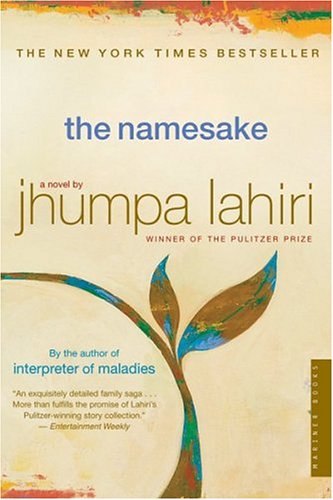All Nonfiction
- Bullying
- Books
- Academic
- Author Interviews
- Celebrity interviews
- College Articles
- College Essays
- Educator of the Year
- Heroes
- Interviews
- Memoir
- Personal Experience
- Sports
- Travel & Culture
All Opinions
- Bullying
- Current Events / Politics
- Discrimination
- Drugs / Alcohol / Smoking
- Entertainment / Celebrities
- Environment
- Love / Relationships
- Movies / Music / TV
- Pop Culture / Trends
- School / College
- Social Issues / Civics
- Spirituality / Religion
- Sports / Hobbies
All Hot Topics
- Bullying
- Community Service
- Environment
- Health
- Letters to the Editor
- Pride & Prejudice
- What Matters
- Back
Summer Guide
- Program Links
- Program Reviews
- Back
College Guide
- College Links
- College Reviews
- College Essays
- College Articles
- Back
The Namesake MAG
The Namesake is the story of Gogol Ganguli, a first-generation American conflicted by his native roots and the culture around him. Ashoke and Ashima Ganguli are Bengalis from Calcutta, while their children, Gogol and Sonia, are born and raised in Cambridge, Massachusetts. The reader sees Gogol's struggle to be a “normal” American while trying to remain loyal to his parents and the culture they want him to grow up in.
After recovering from an accident that nearly kills him, Ashoke Ganguli marries and moves to Cambridge. Not long after, Ashima gives birth to a baby boy she and Ashoke name Gogol. When Gogol is young, he is loyal to his parents' culture; he is naive and mostly interacts with other Bengali kids. As he matures he becomes embarrassed by his name and more aware of how different he is from his classmates.
When Gogol goes to college he loses some of his parents' values. He goes to parties, smokes, drinks, dates, and goes farther than he should. Before college, he legally changes his name to Nikhail in order to be more “normal.” It is not until his father tells him the story of his birth that he begins to value the name Gogol and what it represents to his parents.
Lahiri paints an elaborate picture of the difficulties of being a first-generation American. The Namesake should be read not only to realize the struggle of a family new to America, but also to discover how much they do not know about their own culture. Once we understand our own culture, we can appreciate others.
Similar Articles
JOIN THE DISCUSSION
This article has 0 comments.

